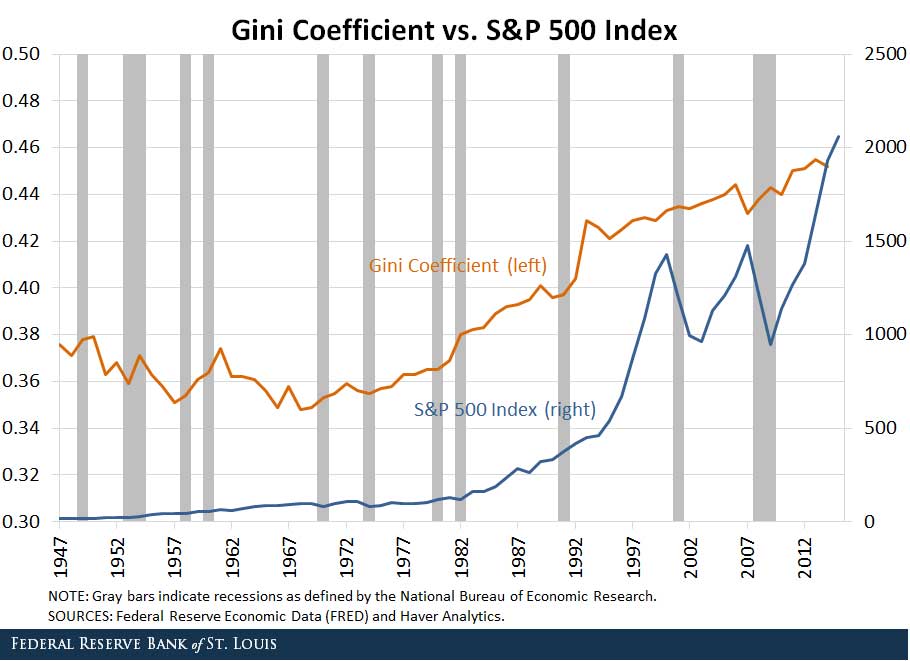
(Washington’s Blog) The St. Louis Fed asked last week, “Are Rising Stock Prices Related to Income Inequality?” … andanswered affirmatively:
Income inequality in the U.S. started to increase in the 1970s, and stock market gains accompanied this increase, according to a recent Economic Synopses essay.
Assistant Vice President and Economist Michael Owyang and Senior Research Associate Hannah Shell noted that increases in stock prices and capital returns may benefit the wealthy more than others, as they have better access to markets. They wrote: “Thus, as stock prices and capital returns increase, the wealthy might benefit more than other individuals earning income from labor.”
The figure below shows stock prices (as measured by the S&P 500 Index) along with the Gini coefficient, which represents a measure of income inequality. (A Gini coefficient of 0 means incomes are perfectly equal, and a coefficient of 1 means incomes are perfectly unequal.)

The authors pointed out that inequality began to rise in the 1970s. The Congressional Budget Office estimated that between 1979 and 2011:
- Market income grew an average of 16 percent in the bottom four quintiles.
- It grew 56 percent for the 81st through 99th percentiles.
- However, it grew 174 percent for the top 1 percent.1
Regarding stock returns, the S&P 500 Index grew from 92 in 1977 to over 1,476 in 2007. By comparison, it grew only 50 percent in the 30 years prior. The authors noted: “As stock prices rise, the gains are disproportionately distributed to the wealthy. Lower- and middle-income families who are also wealth-poor are less likely to expose their savings to the higher risks of equity markets.”
Owyang and Shell concluded: “The increase in income inequality in the 1970s was accompanied, in part, by gains in the stock market. Comovement between stock prices and income inequality results from the fact that gains in the stock market tend to benefit those in the wealthiest portion of the income distribution, who have better access to and higher participation in these asset markets.”
In addition, Fed officials have admitted that Fed policy has focused on boosting stock prices.
While the mind-blowing corruption of the big corporations is obviously part of the problem, bad government policy may actually be the deeper source of runaway inequality.
Even the Wall Street Journal notes:
Many aspects of the recovery, and the Federal Reserve’s stimulus policies, have benefited the rich over others.
We’ve now got king-and-serf levels of inequality … and arguably the worst inequality in world history(and see this).
No wonder people are pissed …